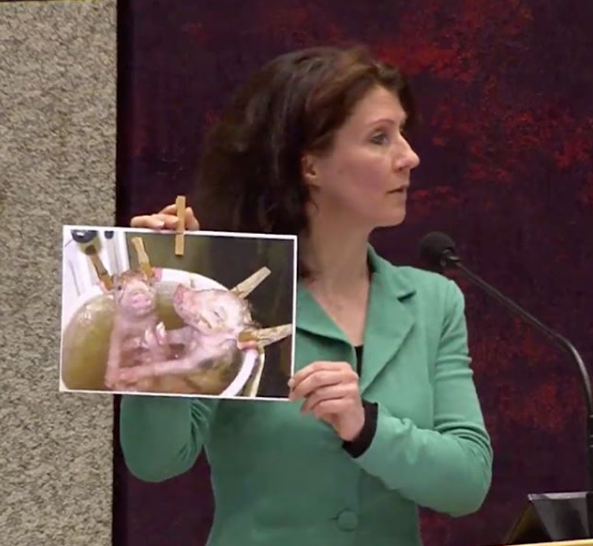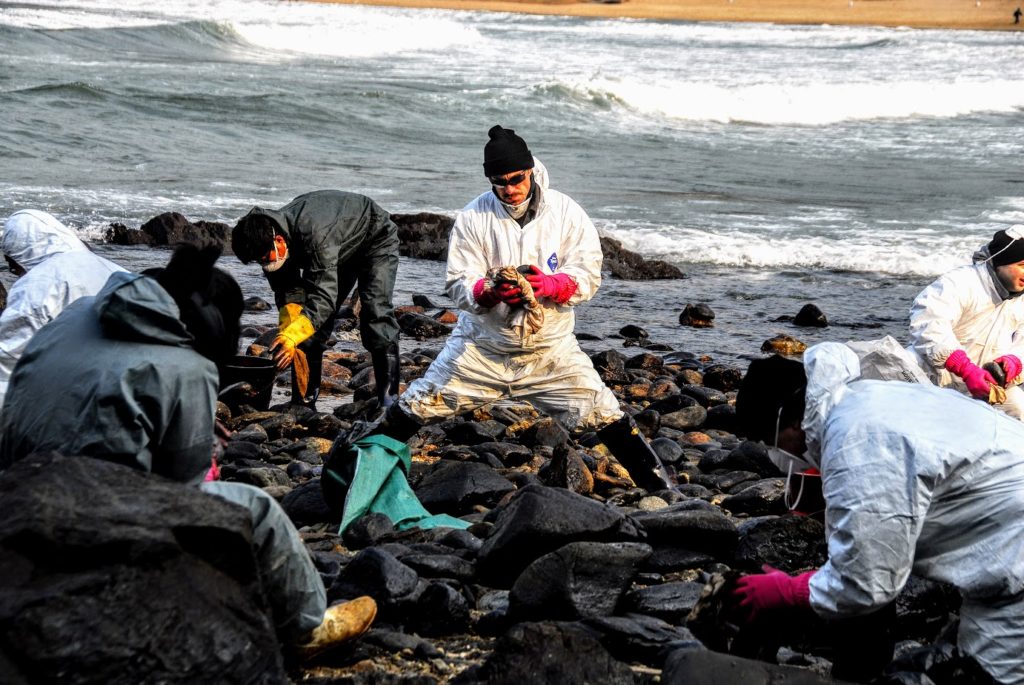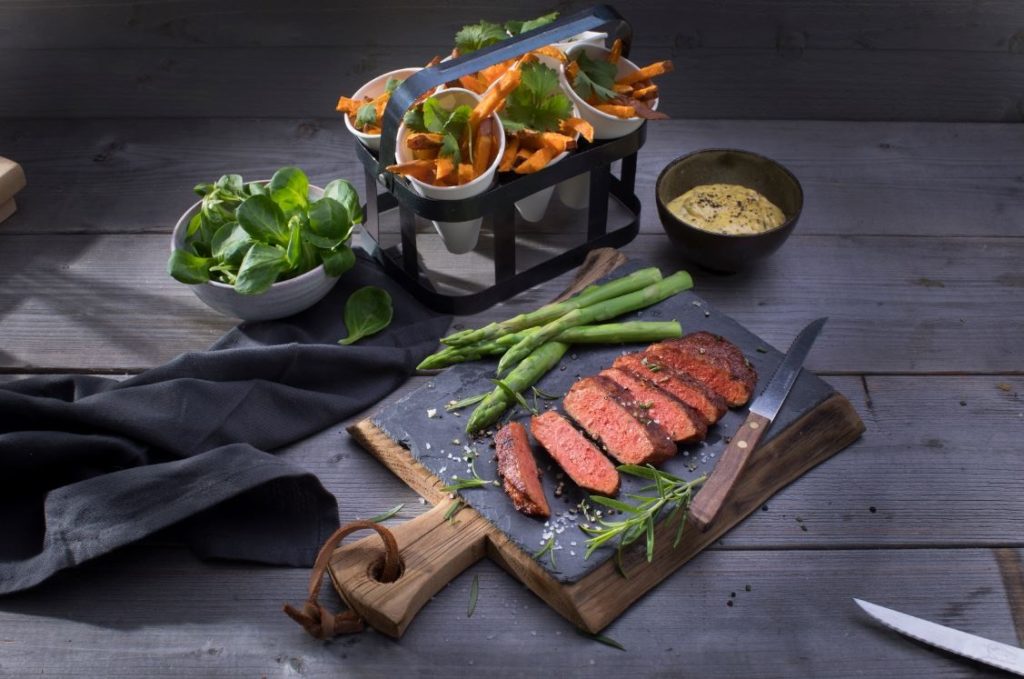Worldlog Marianne Thieme del 22 de mayo de 2018
Last week all MPs had the week off due to Spring recess. However, immediately following the recess we raised some important issues in the Lower House, including the necessity to stop the growth of air transport, and to finally effectively address the animal abuse in pig farms in the Netherlands. It is heart-breaking how intelligent creatures like pigs are treated in a developed land such as the Netherlands: pigs in the industry have been bred radically on the largest possible number of piglets when a sow gives birth. As a result, almost 5 million piglets a year are born too weak and consequently die of hypothermia or diarrhoea. These piglets are often beaten to death against a wall or hung by the ears in a bucket of warm water to prevent hypothermia. The fact that such practices are seen by the industry as a solution clearly illustrates the moral bankruptcy of conventional livestock farming.

Party for the Animals MP Esther Ouwehand addressing pig abuse in the Lower House
Last week has also shown a paradigm shift which we have been advocating for years. Statistics Netherlands (CBS), a major Dutch scientific institution, published the so-called ‘Broad Prosperity Monitor’ last week. In order to measure prosperity, this monitor looks beyond the gross domestic product (GDP) and takes into account a number of other indicators such as the environment, public health, education, employment, safety, confidence and inequality. Until now, national prosperity was measured mainly in terms of GDP (economic growth) and changes in GDP were seen as the main factor on which policy was based. However, prosperity is more than just economic growth. Moreover, the monitor does not only look at the level of broad prosperity in the here and now, but it also takes into account the extent to which this striving for prosperity may put a pressure on future generations in the Netherlands or on other countries.
The results of this unique monitor are shocking: the Netherlands is officially the dirtiest country in Europe. Of all European countries our country has come last, mainly because of our vast livestock sector and large amounts of manure. In terms of money we are richer than ever before, but from an ecological perspective we have never been so poor. Our wealth, which is at the expense of future generations and other residents of our planet, is not wealth at all, but cheap robbery.

Clean-up after oil spill incident
The monitor’s approach is consistent with the planet-wide vision of the Party for the Animals and all its sister parties worldwide. The monitor reveals the consequences of our actions and shows that the current way of treating each other, our surroundings, animals and the environment is no longer acceptable. We only hope that the next edition of the monitor will consider the interests of all inhabitants of the planet, not just those of mankind.
Our European group also had some good news: the EU finally voted in favour of a, possibly partial, ban on neonicotinoids which are used as an agricultural toxin – a major step for bees and the entire world! Moreover, the European Parliament has called for a global ban on animal testing in the cosmetics sector. Already in 2004, the EU banned animal testing for cosmetic products, but nevertheless, cosmetics involving animal suffering are still being sold today.

A great alternative: the world’s first plant-based steak
Unfortunately, there are also some disturbing developments going on in Europe and beyond. The EU has finally become aware of the thing we warned them about from the beginning: the association agreement with Ukraine has flooded the EU market with Ukrainian broiler chickens. These chickens are kept in appalling conditions and the factory farms in which they are kept are often financed by the Netherlands. Furthermore, it has turned out that the EU finances campaigns that stimulate the low rabbit meat consumption. Unacceptable. We need to move on from this polluting system of human and animal suffering and work together in order to allow more sustainable and plant-based agriculture.
So, to end on a positive note: the Dutch company Vivera has launched the world’s first steak without animal-suffering! 100% plant-based and free of palm oil. Read more about it here.
Until next time,
Marianne
El receso de mayo terminó apenas la semana pasada y como diputados pudimos disfrutar unos días feriados. Sin embargo, inmediatamente después del receso, planteamos cuestiones importantes en la Cámara de Representantes, entre las cuales la necesidad de detener el crecimiento del tráfico aéreo y el hecho de que urge terminar los abusos en las pocilgas holandesas. Es terrible ver cómo tratamos a criaturas inteligentes como los cerdos en un país tan desarrollado como los Países Bajos: el sector ha logrado aumentar las camadas de forma extrema. Como resultado, nacen casi 5 millones de lechones por año que llegan demasiado débiles al mundo y mueren por hipotermia o diarrea. Estos lechones son regularmente golpeados hasta la muerte contra la pared por el criador de cerdos o se los cuelgan con pinzas de ropa en los orejas en un balde de agua caliente para evitar la hipotermia. El hecho de que los del sector vean esto como una solución apropiada, muestra la caída moral en la industria ganadera convencional.

La parlamentaria del Partido por los Animales, Esther Ouwehand, plantea los abusos de la industria porcina en la Cámara de Representantes
La semana pasada también vimos un cambio paradigmático importante en relación de algo que hemos estado promoviendo desde hace años. La Oficina Central de Estadísticas (CBS, por sus siglas en holandés), es una importante institución científica holandesa y publicó el llamado «Monitor del Amplio Bienestar» la semana pasada. Este monitor mide la prosperidad no sólo sobre la base del producto interno bruto (PIB), sino también toma en cuenta los indicadores tales como el medio ambiente, la salud, la educación, el empleo, la seguridad, la confianza y la desigualdad. Hasta ahora, se medió sobre todo el PBI (el crecimiento económico), que era considerado como el factor más importante en base de lo cual se debía dirigir la política. Pero la prosperidad es más que crecimiento económico. En el monitor no sólo se refleja el nivel de prosperidad del «aquí y ahora», sino también hasta qué grado esta prosperidad afecta a las generaciones futuras en los Países Bajos y en otros países.
Los resultados del monitor de este año son impactantes: Holanda ahora se proclama oficialmente como “el niño más sucio del salón”. Nuestro país ha terminado en el último lugar de Europa, especialmente debido a la enorme cantidad de ganado y la gran cantidad de estiércol. Estamos literalmente ricos pero malolientes: si se trate de dinero, somos más ricos que nunca, pero al mismo tiempo nunca estuvimos tan graves desde la perspectiva ecológica. Nuestra riqueza de ahora es a expensas de las generaciones futuras. Asimismo es a expensas de los otros habitantes de este planeta y por lo tanto no es una riqueza, sino un robo común.

La limpieza después de un derrame petrolero
El enfoque del monitor está estrechamente alineado con la visión global del Partido de los Animales y todos nuestros partidos hermanos en el mundo. El monitor muestra las consecuencias de nuestras acciones y muestra que la forma actual de tratar con nuestro entorno, nosotros mismos, los animales y el medio ambiente ya no es sostenible. Esperamos que en la próxima edición del monitor se tengan en cuenta los intereses de todos los habitantes del planeta, y no exclusivamente con los del hombre.
También hubo buenas noticias de nuestra fracción europea: la UE finalmente votó a favor de la prohibición (parcial) de los neonicotinoides, que son utilizados como veneno en la agricultura. ¡Este es un paso importante para las abejas y toda la tierra! Además, el Parlamento Europeo ha pedido una prohibición mundial de las pruebas con animales en la industria cosmética. En el 2004, la UE ya prohibió las pruebas con animales para productos cosméticos, pero todavía hay cosméticos en la tienda por los cuales los animales han sufrido.

Ya se hizo realidad, el primer filete con base vegetal en el mundo
Lamentablemente, también hay desarrollos preocupantes en Europa y más allá. La UE hasta ahora no había dado importancia a lo que ya venimos advirtiendo desde hace tiempo: debido al acuerdo de asociación con Ucrania, el mercado de la UE se está invadiendo con gallinas de las granjas industrializadas de Ucrania. Estos pollos se encuentran en condiciones terribles y los enormes granjas avícolas a menudo son financiados desde los Países Bajos. También resulta que la UE está financiando campañas para estimular el consumo de carne de conejo. Inaceptable. Tenemos que deshacernos de este sistema contaminante, lleno de sufrimiento humano y animal, y trabajar juntos para hacer posible una agricultura más sostenible, enfocada en la cultivación de vegetales.
Y, concluyo con esta noticia positiva: ¡La compañía holandesa Vivera ha lanzado el primer filete del mundo que es causa de sufrimiento animal! Es al 100 por ciento vegetal y hecho sin aceite de palma. Lea más aquí.
Hasta la próxima vez
Marianne